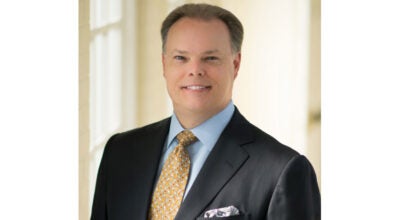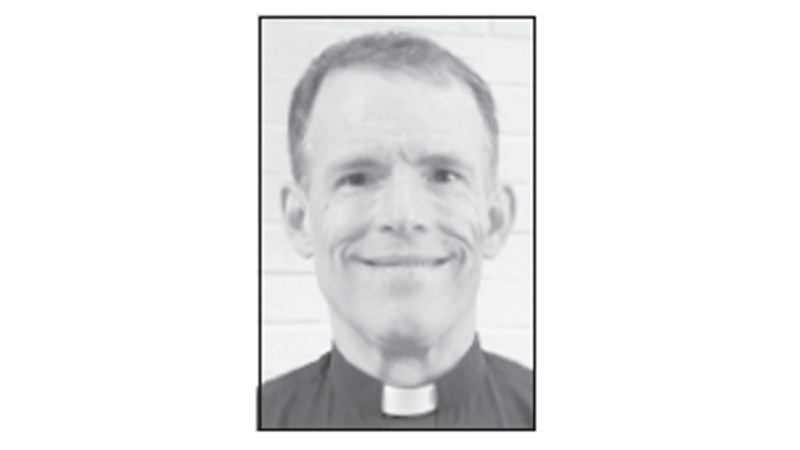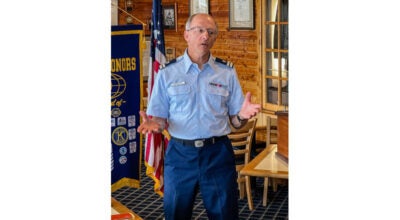Front-view living
Published 12:39 pm Saturday, November 4, 2017
by Andrew Book
We all have a past. For some people, their past is filled with glowing accomplishments and successes. For those folks, the past is something to be celebrated and highlighted. Others have pasts that are rough and dark. They have histories they would rather not talk about and experiences that still haunt them. For them, the past is something they wish they could forget — but usually can’t.
Most of us fall somewhere between these two extremes. We have parts of our past we are proud of and stories we are excited to tell because those stories highlight the best parts of ourselves. Most of us also have parts of our past we are not eager to relive. Whether those are failures of our own making or times in our lives when other people abused, belittled or tore us down, those dark places in our past are pieces of our history we do not want to define us — and yet they often do.
Depending on the day, we may look at our past and see the accomplishments worth celebrating or the pain and failure we wish we could remove. Depending on the day, our view of ourselves is hopeful because we are riding on past successes or pessimistic because we are weighed down by the burdens of our past. Sometimes we relish in what we remember. Other times we cringe.
Reflecting on our past is important. Processing failures, celebrating successes and healing from wounds are all essential to being able to live well into the future, but the past also has a way of overwhelming the present so that it becomes all we can see. The image of a rear-view mirror in a car is helpful analogy. When we are driving, we need to know what is behind us. Different vehicles are equipped with different tools to see behind them: rear view mirrors, side view mirrors and even back-up cameras help us to see behind us. However, you cannot drive if you focus if purely fixed on what is behind you.
In the same way, life must be lived with most of our attention on the present and how we are moving toward the future. The past informs us and shapes us, but it does not control us. The Apostle Paul, the author of most of the New Testament in the Bible, knew this well. Paul had both light and dark in his past. He was both “a real Hebrew if ever there was one” who “obeyed the law without fault” (Philippians 3:5,6), as well as being the “worst sinner of all” because of how he had persecuted those who followed Jesus before he met Christ (1 Timothy 1:13-15.) Depending on the letter he was writing, he recognized he could point to both the successes or the failures in his own past. But, he also recognized that focusing on either of those sides of his past would not help him to move into the future. As a result he made this declaration: “I once thought these things [his accomplishments] were valuable, but now I consider them worthless because of what Christ has done … I focus on this one thing: Forgetting the past and looking forward to what lies ahead, I press on” (Philippians 3:7, 13-14.)
Paul did not literally “forget” the past in the sense that he could not remember it — after all he had just told his readers all about his past. For him to “forget” the past meant that he was setting aside those memories in order to live more fully in the present. Biblical commentator G.F. Hawthorne explains what it means to “forget” the past this way:
“…to forget those wrongs done… whose memory could paralyze one with guilt and despair; to forget, too, those attainments achieved, the recollection of which might cause one to put life into neutral and to say “I have arrived;” and to forget in such a way that the past, good or bad, will have no negative bearing on one’s present spiritual growth or conduct. Paul wishes also to express the importance of continuous concentration on the things that are in front, on the goal of the full and complete knowledge of Christ Jesus. His summons is unceasingly to reach out toward something other than oneself.”
Paul’s goal was to pursue Christ, to know Christ and to live for Christ. Paul knew the love of God meant that nothing in his past could separate him from God (see Romans 8), so he was going to press on to know God fully. We have the same opportunity — to set aside our past and to put all of our energy into living for those things that matter most to us — whether that is pursuing Christ or any other goal!
At Courtland United Methodist Church, we are beginning a series on “Front-View Living,” which tackles this call: the call to live “forgetting” the past and reaching out toward the future. We are going to spend the month of November trying to grasp how to live well as people who all have mixed stories in our past. We would love to have you join us in worship on Sundays at 11 a.m. Regardless of whether you worship with us, my prayer is that you would be able to live with your past behind you, stretching out towards those things which matter most.
ANDREW BOOK is the pastor of Courtland United Methodist Church. He can be contacted at 653-2240 or andrew@courtlandumcva.org.





